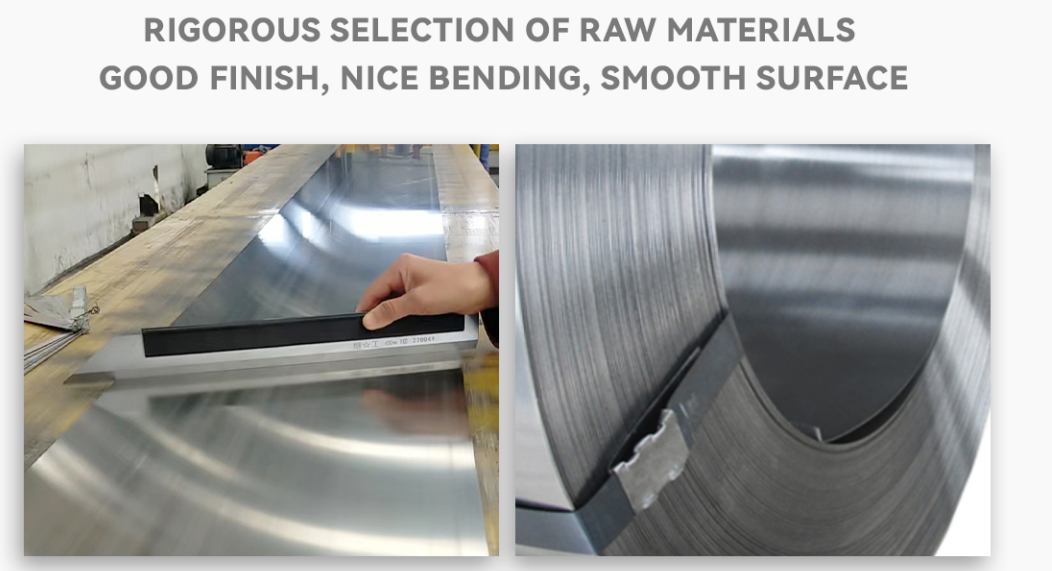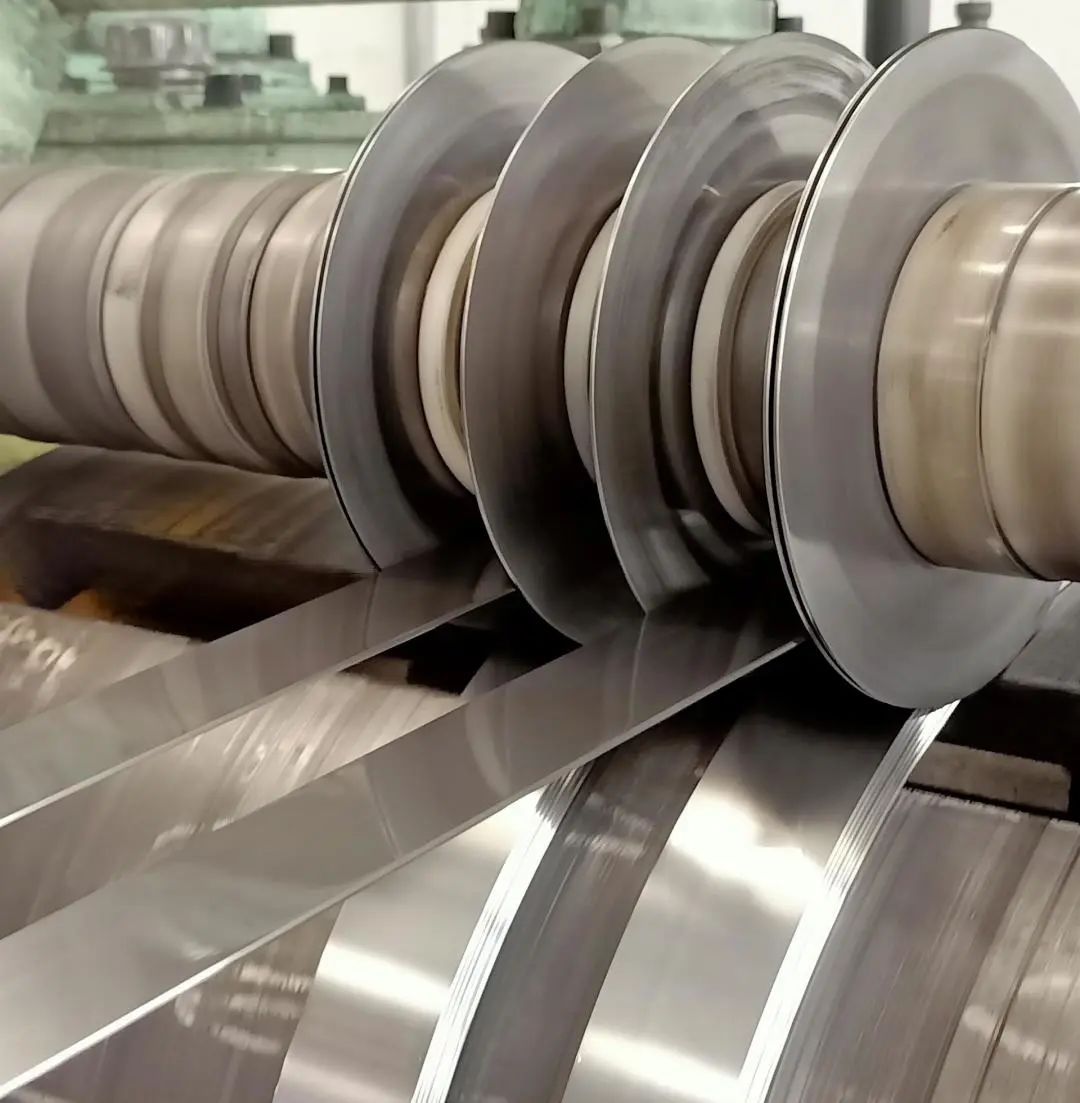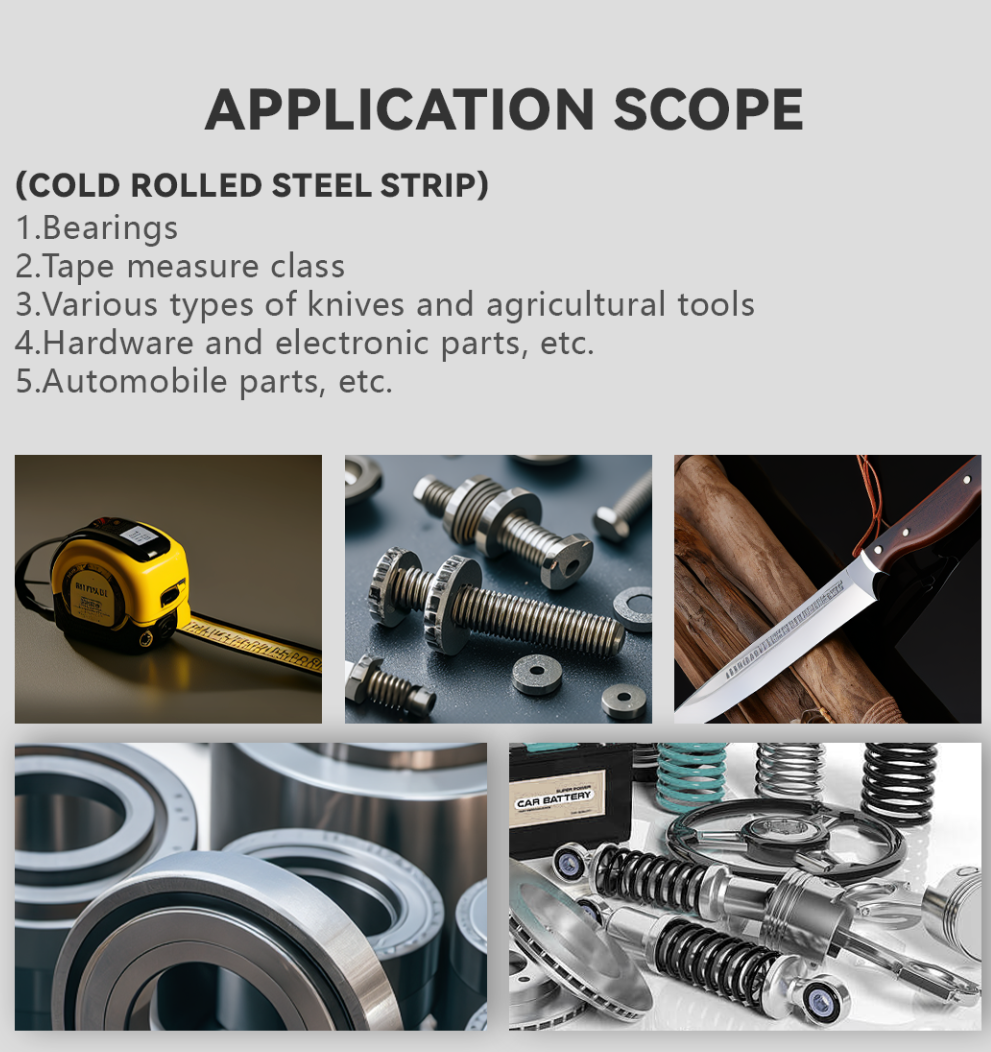Introduction to Steel Strips
Steel strips are thin, flat-rolled metal products that serve as fundamental components across countless industries. Ranging in thickness from ultra-thin 0.1mm gauges to sturdy 3mm sheets, these precision-engineered materials combine exceptional strength, formability, and corrosion resistance - making them indispensable in applications from automotive manufacturing to electronics.
Key Industries and Applications
1. Automotive Manufacturing
-
Body panels and structural components
-
Chassis reinforcements and suspension parts
-
Safety systems including seatbelt springs and airbag components
2. Construction & Infrastructure
-
Roofing and cladding materials
-
HVAC ductwork and building frameworks
-

-
Reinforcement strips for concrete and masonry
3. Industrial Manufacturing
-
Precision blades for cutting tools
-
Springs for machinery and vehicles
-
Pipes and tubing for fluid transport systems
4. Electronics & Appliances
-
EMI/RFI shielding components
-
Battery casings and connectors
-
Precision parts for consumer electronics
Advantages of Modern Steel Strips
✔ Superior Strength-to-Weight Ratio - High durability without excessive mass
✔ Exceptional Formability - Can be stamped, bent, or welded into complex shapes
✔ Advanced Corrosion Resistance - Through galvanization, epoxy coatings, or stainless alloys
✔ Cost-Effective Production - Ideal for high-volume manufacturing
✔ Eco-Friendly - 100% recyclable with minimal quality loss
Technological Advancements
Recent innovations have further enhanced steel strip performance:
-
Nano-coatings for extreme wear resistance
-
High-strength low-alloy (HSLA) steels for lightweight applications
-
Smart manufacturing integration for precision quality control
-
Hybrid composite strips combining steel with other materials
Selection Guide: Choosing the Right Steel Strip
| Factor | Considerations |
|---|---|
| Thickness | 0.1-1mm for electronics; 1-3mm for structural uses |
| Width | Narrow for precision parts; wide for construction |
| Steel Grade | Mild steel, HSLA, or stainless steel |
| Surface Finish | Galvanized, painted, or polished options |
| Temper | Soft for forming; hard for cutting tools |
Future Trends in Steel Strip Technology
-
Self-healing coatings for maintenance-free durability
-
Graphene-enhanced strips for unprecedented strength
-
AI-optimized alloy development for specialized applications
-
Sustainable production methods reducing carbon footprint
Conclusion
From the cars we drive to the buildings we inhabit, steel strips form the unseen foundation of modern life. Their unique combination of strength, versatility, and cost-effectiveness ensures they will remain crucial materials as manufacturing technologies advance. Whether you're an engineer specifying materials or a procurement specialist sourcing components, understanding steel strip capabilities is key to successful project outcomes.
Looking for premium steel strip solutions? Consult with leading manufacturers to find the perfect specification for your application.







